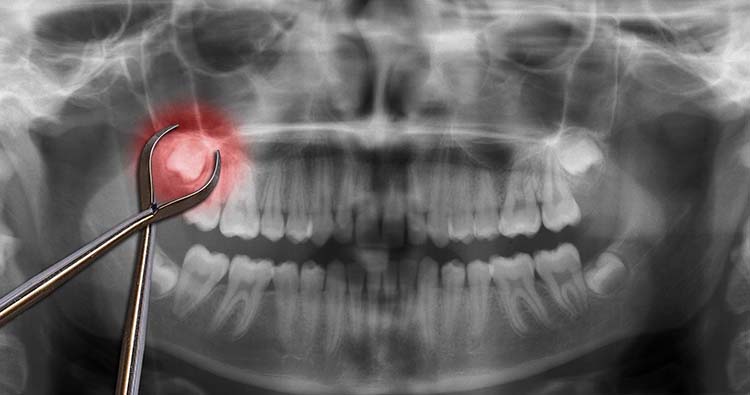10 Warning Signs your Wisdom Teeth need to be removed
Read on for 10 indications that you should have your wisdom teeth removed.
Many of the symptoms listed below are those of wisdom teeth that are either impacted or don’t have enough space to erupt naturally. Some of these symptoms are also present in completely unrelated dental conditions. Be sure to make an appointment with a dental expert if you experience any of the symptoms listed below. Avoiding dental issues can be expensive, both financially and in terms of your health.
1. Back of the mouth discomfort
Back of mouth pain is one of the most frequent and readily identifiable signs that your wisdom teeth are causing. It is possible for this pain to be sporadic, infrequent, or constant.
2. Protruding or Sensitive Gums
A flap of gum tissue may develop on the top or the side of the gum near the oncoming tooth as wisdom teeth start to erupt. Little food particles and bacteria can readily get trapped by this flap, infecting the area. It frequently swells as a result of this, leaving you with red, sore gums.
3. Gums that bleed
Your wisdom teeth may be trying to erupt if you notice that the gums in the rear of your mouth bleed when you brush your teeth.

4. Headaches Or Ear Pain
Many people mistakenly believe that problems with wisdom teeth only result in oral pain; nevertheless, discomfort in other regions may also indicate that you should have them removed. Pain in your mouth or jaw frequently spreads, resulting in headaches or earaches.
5. Jaw stiffness or discomfort
Your tooth’s bite may vary if your wisdom teeth erupt incorrectly. It may hurt and cause stiffness, which makes it challenging to open or close your mouth. As soon as you can, take care of this issue because having your mouth out of alignment might have major consequences.
6. Jaw Bruising or Swelling
Your jaw may initially modestly bulge in response to a wisdom tooth trying to erupt, but over time, this swelling may become more pronounced.
7. Recurrent sinus problems
Your sinuses may become compressed if your wisdom teeth establish roots in your upper jaw. This may result in congestion, headaches, pressure, or sinus pain.
8. Teeth that are crowded or crooked
Despite there not being enough room in the mouth for them, wisdom teeth frequently start to erupt. Overcrowding the mouth can push teeth together and result in crooked teeth. It is impossible to make them all fit. You need to have either some or all of your wisdom teeth removed.
At Oakstone Dental we can determine whether your wisdom teeth will crowd your other teeth by looking at x-rays before they fully erupt. This is just one illustration of why it’s crucial to schedule a consultation as soon as you notice your wisdom teeth erupting. You might need to spend money on braces if it gets to the point where your other teeth are crooked.
9. Growths Close to Your Wisdom Teeth
If your wisdom teeth are neglected, cysts, or sacs of fluid, may develop in your mouth. If left untreated, these cysts can seriously harm your jaw, teeth, and nerves.
10. Consistent cavities or tooth infections
People frequently brush and floss less frequently than they should since having wisdom teeth can make the back of the mouth uncomfortable or unpleasant. Cavities, dental decay, and infections may result from this. Additional symptoms from infections, like a sore throat or fever, are possible.
11. Breath is bad or Trouble Eating
Food particles may become stuck in the back of your mouth if you can’t adequately clean it. This could cause poor breath or a lingering bad taste in your mouth on its own, not to mention any illness that might develop as a result.
As was previously indicated, food fragments can get lodged in the back of your mouth as your wisdom teeth erupt. Eating may become very challenging as a result of the pain or discomfort this may bring. Eating can be challenging if you have difficulties opening your mouth completely or are sensitive to heat or cold. These conditions may indicate that you need to have your wisdom teeth removed.
Schedule an appointment with Oakstone Dental if you’re dealing with any of these symptoms. Our professional staff will be able to tell you for sure whether your symptoms are in fact indicating that it’s time to get your wisdom teeth removed.







